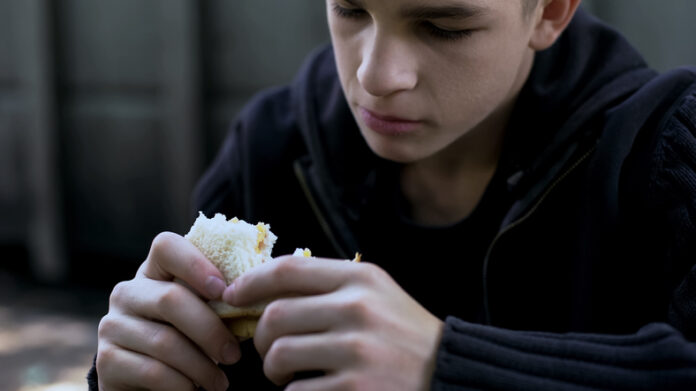New Zealand’s Health Coalition says food poverty has contributed to the nation’s poor performance in an international educational achievement test for 15-year-olds, reigniting calls for broader access to free healthy school lunches.
“The 2022 PISA (Program for International Student Achievement) data shows achievement for students who miss meals due to lack of money is two to four years behind their peers who never miss meals,” says researcher, Dr Pippa McKelvie-Sebileau.
Analysis by Dr McKelvie-Sebileau and Health Coalition Aotearoa (HCA) co-chair Professor Boyd Swinburn in the latest Public Health Communication Centre Briefing found New Zealand’s food poverty rates were among the highest of the 25 countries that provided the data.
For the first time the test questionnaire asked students how many meals they had missed in the past 30 days due to a lack of money to buy food.
The data showed that each week 14 in every 100 Kiwi students were missing a meal at least once, and 6.5% were going without meals more than four times.
“Students who missed meals even just once a week scored much lower than their peers who never went hungry,” Dr McKelvie-Sebileau said.
“For example, in maths the gap was 60 points between students who never go hungry and those who miss a meal once a week and 83 points for students who miss meals two to three times a week.”
To put this into perspective, 20 points on the PISA scale is regarded as equivalent to one year of learning for 15-year-olds.
The analysis accounted for known effects of socio-economic deprivation on educational achievement so that the effects of hunger on the PISA scores could be determined, irrespective of socio-economic status.
The Ka Ora, Ka Ako healthy school lunch programme offered to 230,000 students in about 1,000 of the least advantaged schools, is a major safety net against food poverty, the HCA says.
Professor Swinburn said the PISA food poverty data strengthens the case for greater investment in Ka Ora, Ka Ako.
“This PISA data shows that hunger has a significant impact on achievement and an expanded Ka Ora, Ka Ako would provide the coalition Government with an evidence-based solution to raise educational achievement.”
“Increasing the number of schools receiving Ka Ora, Ka Ako would definitely help remove the barrier to learning for these students,” he said.



